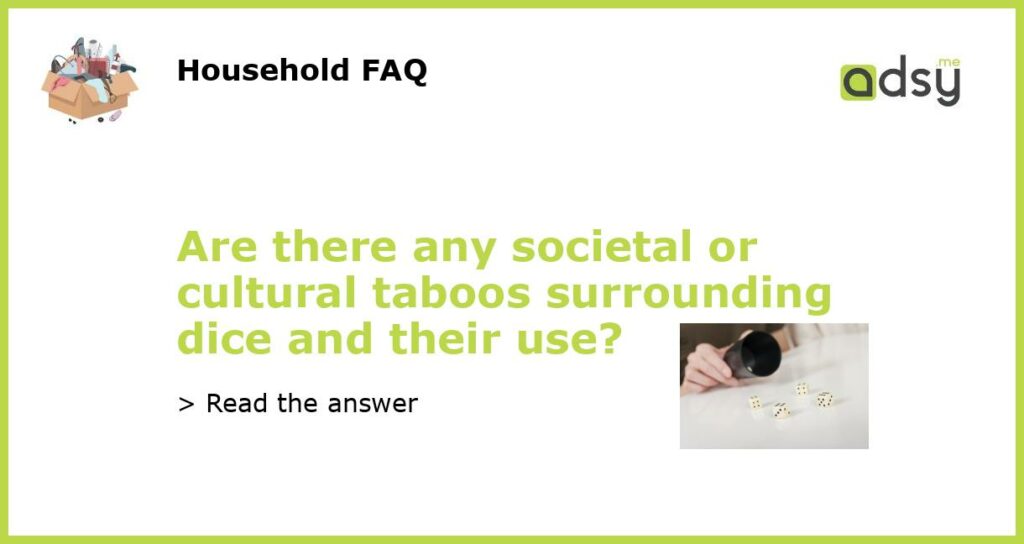Taboos and Superstitions: The Cultural Significance of Dice
From ancient times to modern day casino floors, dice have played an important role in human culture. Used for gambling, divination, and even as a symbol of fate, these small objects have taken on a significant amount of cultural significance. But are there any societal or cultural taboos surrounding dice and their use?
Dice in Religion and Divination
Throughout history, dice have been used in religious and divinatory practices around the world. Perhaps the most well-known example is the use of dice in the game of craps, which has roots in ancient Egyptian and Roman games of chance. In Hinduism, dice play a role in the game of chaupar, which is used to represent the struggle between good and evil. In some African and Caribbean religions, dice are used in divination and fortune telling.
Taboos and Beliefs Surrounding Dice
Not all cultures view dice as harmless objects of chance, however. In some cultures, there are taboos surrounding their use that stem from deeply held beliefs. For example, in some parts of Africa, it is believed that owning or using dice can bring bad luck, while in some Islamic cultures, gambling with dice is seen as a sin that can bring shame and disgrace to a family. Similarly, some Native American cultures view dice games as a form of greed that can lead to conflict and dissension.
Dice and Superstitions in Gambling
Even in cultures where dice games are widely accepted and enjoyed, there are often superstitions and beliefs surrounding their use in gambling. For example, some gamblers believe that blowing on the dice or rubbing them for good luck can increase the chances of a winning roll. Others believe that certain numbers or combinations are luckier than others and will only bet on those outcomes. These beliefs can be so strong that they have influenced the design of dice and the rules of certain games.
The Changing Meaning of Dice in Modern Society
In modern society, dice have taken on new meanings and associations beyond their traditional roles in religion, divination, and gambling. For example, dice are often used as a symbol of rebellion or nonconformity, such as in the game Dungeons & Dragons or in the punk rock subculture. They have also been used in modern art and design, as well as in board games and other forms of entertainment. As our relationship to dice continues to evolve, it will be interesting to see how they continue to shape and reflect our cultural beliefs and practices.






